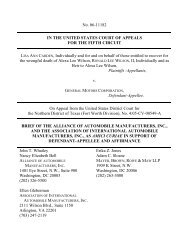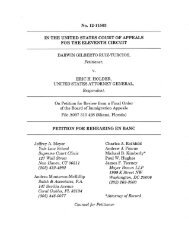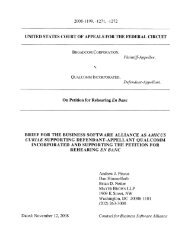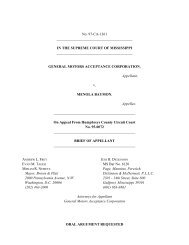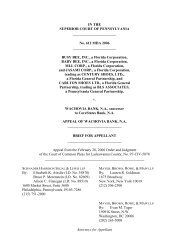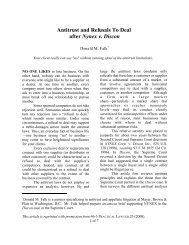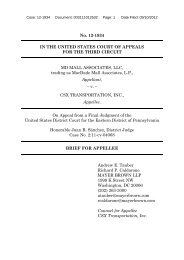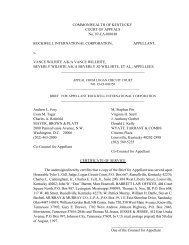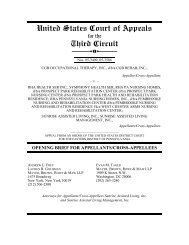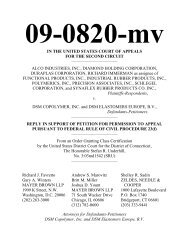No. 5-99-0830 IN THE APPELLATE COURT OF ... - Appellate.net
No. 5-99-0830 IN THE APPELLATE COURT OF ... - Appellate.net
No. 5-99-0830 IN THE APPELLATE COURT OF ... - Appellate.net
You also want an ePaper? Increase the reach of your titles
YUMPU automatically turns print PDFs into web optimized ePapers that Google loves.
The circuit court compounded its error in certifying the class by refusing to decertify<br />
it after plaintiffs shifted their theory of the case. As State Farm had predicted, once the trial<br />
got underway, it became clear that plaintiffs were no longer shouldering the burden of<br />
proving that non-OEM parts were so universally inferior that they could never be used to<br />
restore any vehicle, no matter how decrepit it might be, to its pre-loss condition. Instead,<br />
plaintiffs now argued that it was not their burden to prove that all non-OEM parts were<br />
inferior and that they could prevail if they could persuade the jury that State Farm had<br />
breached its “promise to the class.” R. 12987. 23/<br />
The circuit court allowed plaintiffs to<br />
present their case on a global, aggregate basis, without having to prove that all non-OEM<br />
parts were inferior, which members of the class had suffered an economic loss as a result of<br />
the installation or specification of an inferior non-OEM part, or the extent of any individual’s<br />
loss. See, e.g., R. 12351; A. 61-62.<br />
The approach plaintiffs adopted at trial effectively substituted the class as the<br />
plaintiff in the action, submerging all of the class members’ individual claims into a single,<br />
aggregate claim. Under this “aggregate” theory, the individual facts of any class member’s<br />
claim — and even of the class representatives’ claims — were irrelevant, because the issue<br />
was whether the class as a whole had suffered some injury as a result of the practice in<br />
question. The circuit court’s decision to accept this approach to avoid what otherwise would<br />
23/<br />
Compare plaintiffs’ statements at the class certification stage that “we will prove at<br />
trial that all imitation crash parts are inferior” and that “what we will prove is all imitation<br />
crash parts are bad,” R. 1796, 1803, with their closing argument to the jury that “[i]t is not<br />
our burden in this case” to prove the inferiority of all non-OEM parts and that they needed<br />
to prove merely “[t]hat it is more probably true than not true that State Farm broke its<br />
promise to the class.” R. 12987.<br />
-44-



